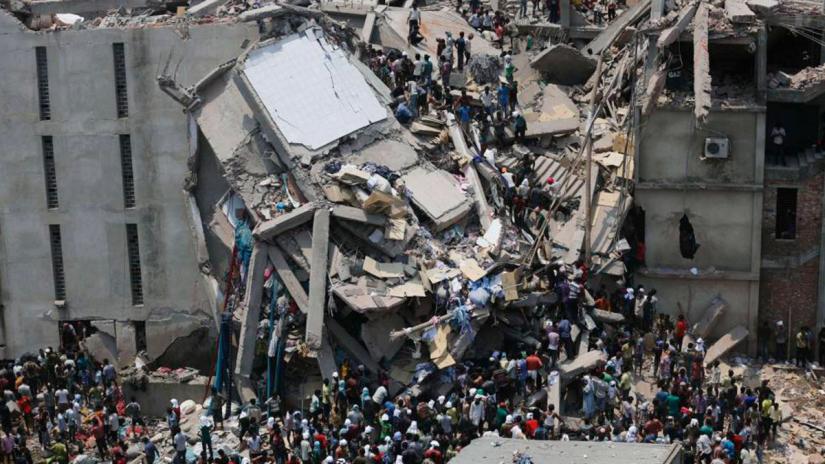 Loblaws, one of the largest cloth retailers in Canada, is off the hook for the 2013 Rana Plaza collapse.
Loblaws, one of the largest cloth retailers in Canada, is off the hook for the 2013 Rana Plaza collapse.
In a decision on Thursday (Aug 8), the Supreme Court of Canada refused to hear a group of Bangladeshi victims and relatives who wanted to sue Loblaws over the tragedy, reports The Canadian Press.
The key issue in the lawsuit was whether a Canadian court had jurisdiction to consider the claim — of importance to companies that source product from abroad, according to the report by the news agency.
Both Ontario’s Superior Court and Court of Appeal had previously denied the plaintiffs class-action certification in their quest for $2 billion in compensation.
Two of the clothing-manufacturing companies caught up in the Apr 24 , 2013 collapse of the nine-storey building were Pearl Global and New Wave, which was under contract to supply Loblaws with apparel for its Joe Fresh brand.
Two years after the tragedy, Arati Rani Das, who lost a limb and whose mother was killed in the collapse, and three other Bangladeshi citizens launched a proposed class action in Ontario against Loblaws and three affiliates.
In their statement of claim, the plaintiffs argued Loblaws was responsible for worker safety. They alleged the company knew workplaces in Bangladesh were dangerous, and had undertaken to ensure the buildings in which Joe Fresh garments were made were safe.
Superior Court Justice Paul Perell decided in July 2017 that Bangladesh’s laws applied. As such, he concluded the claim had been filed too late, and that Loblaws owed no “duty of care” to the proposed class members.
On appeal, Ontario’s top court agreed. In its decision in December, the Court of Appeal ruled the deaths and injuries formed the basis of the claim, and those occurred in Dhaka.
In its decision in December, the Court of Appeal ruled the deaths and injuries formed the basis of the claim, and those occurred in Dhaka.
The court found that Loblaws had little control over the factories and had never promised to audit Rana Plaza for structural safety. As a result, the court decided, the governing law was that of Bangladesh. The court also found the claim had been filed too late.
“It is plain and obvious that a claim based on vicarious liability against Loblaws cannot succeed under the law of Bangladesh,” the Appeal Court said.
The Appeal Court also ordered the plaintiffs to pay Loblaws almost $1 million in legal costs — a decision the Supreme Court also left undisturbed.
 Business
Business
41262 hour(s) 43 minute(s) ago ;
Morning 01:37 ; Wednesday ; Jul 02, 2025
Canada’s Loblaws off the hook for Rana Plaza collapse
Send
Bangla Tribune Desk
Published : 05:30, Aug 09, 2019 | Updated : 05:30, Aug 09, 2019
Published : 05:30, Aug 09, 2019 | Updated : 05:30, Aug 09, 2019
0 ...0 ...
/zmi/
Topics: Top Stories
- KOICA donates medical supplies to BSMMU
- 5 more flights to take back British nationals to London
- Covid19: Rajarbagh, Mohammadpur worst affected
- Momen joins UN solidarity song over COVID-19 combat
- Covid-19: OIC to hold special meeting
- WFP begins food distribution in Cox’s Bazar
- WFP begins food distribution in Cox’s Bazar
- 290 return home to Australia
- Third charter flight for US citizens to return home
- Dhaka proposes to postpone D8 Summit
Unauthorized use of news, image, information, etc published by Bangla Tribune is punishable by copyright law. Appropriate legal steps will be taken by the management against any person or body that infringes those laws.
Bangla Tribune is one of the most revered online newspapers in Bangladesh, due to its reputation of neutral coverage and incisive analysis.
F R Tower, 8/C Panthapath, Shukrabad, Dhaka-1207 | Phone: 58151324; 58151326, Fax: 58151329 | Mob: 01730794527, 01730794528






